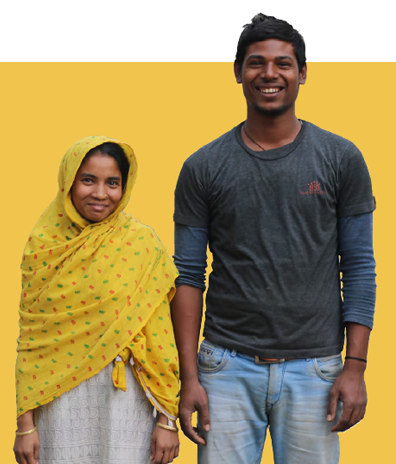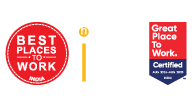The UPHC staff’s Whole-Site Orientation aided in the establishment of adolescent-friendly primary health care facilities
In Dec. 2020, TCIHC's virtual coaching not only helped me overcome my biases related to the provision of contraceptives based on age, parity, and marital status but also equipped me to coach my UPHC staff on providing adolescent-friendly health services, including sexual and reproductive services.
Discovering my own biases
The coaching I received was in fact a behavior change intervention aimed at reducing my own bias. Unsurprisingly, I discovered that social norms were driving my biases. The most pervasive social norm was the significance of sexual abstinence before marriage. And, therefore, my attitude and belief was that contraceptives were meant for married couples only. I recognized that my attitude towards the provision of contraceptives is shaped primarily by client’s age, parity and marital status. I realized youth must pass through many barriers to access SRH. Provider bias is one of the gates. TCIHC provided orientation material based on RKSK guidelines. I received ‘how-to-guidance’ on conducting a values clarification exercise through a whole site orientation for all staff.
After equipping myself, in January 2021, I conducted WSO sessions for my entire UPHC staff at the facility irrespective of cadre and technical skills, which included staff nurse, lab technician, pharmacist, Auxiliary Nurse Midwives (ANM), Accredited Social Health Activists (ASHA), support staff etc. With support from TCIHC, I attended a youth-led City Consultation Workshop (CCW) in Aligarh organized by RKSK. Here I had heard adolescents and youth candidly share their opinions and desires on SRH issues. I was a bit shocked but I immediately realized the necessity of SRH care for unmarried adolescents and youth. TCIHC initiatives – the AYSRH CCW and WSO – both changed my mindset about the importance of providing SRH information and services to adolescents and youth.”
Facilitating a whole-site orientation
“Facilitating the WSO session was a learning experience for me. The design of activities, such as role plays and cases studies, enabled my staff to overcome non-technical biases rooted in attitudes and beliefs, without explicitly saying that they are doing this. An interesting attitude that emerged was that of staff engaging with young clients from parental perspective. The belief that we are in a better, more informed position to make decisions for clients. I encouraged WSO participants to raise concern without hesitation. This created a non-threatening environment for them to ask and clarify their indecisions. I addressed their questions related to menstruation, puberty and physical changes associated with adolescence. While it was difficult, I was determined to discuss contraceptive needs and behaviors of unmarried adolescents and teenagers and invested time in discussing this topic.
The session on values clarification challenged staff to explore the reasons behind their beliefs, and also reflect on the consequences of their actions when clients are denied contraceptive methods. I tried role plays with the help of the game ‘BhrantiaurKranti’ (Myth and Revolution) from RKSK’s Peer Educator Training Manual. ASHAs enacted the role of Bhranti who asked questions and Kranti who responded with correct answers with rationale. This game helped in busting myths about SRH needs of adolescents – married or unmarried. Apart from this, I also coached the facility staff on the competencies required for delivering SRH services in a friendly manner, like being non-judgmental, maintaining confidentiality and privacy, building trust, interpersonal skills, etc. I covered topics of nutrition, non-communicable diseases, substance misuse, violence and mental health. This orientation aided staff to recognize and address their unconscious biases related to SRH needs of adolescents, which were mainly associated with gender, marital status and age. I was motivated to see the City Community Process Manager from the National Health Urban Mission (NUHM) participate in the WSO. Meanwhile, through the session, I endeavored to sensitize the staff towards SRH needs of adolescent and covered standards set by RKSK for AFHC [adolescent-friendly health clinic].”
After coaching
“After the WSO, I witnessed an explicit change in the attitude of UPHC staff. I observed them being mindful of adolescent needs and being empathetic when counseling them during facility Adolescent Health Days (F-AHDs). WSO had truly prepared the staff. After this, with TCIHC’s technical coaching on F-AHD and detailed coaching on how to organize it, we started F-AHDs on the fifth of every month. With management coaching of TCIHC, we arranged reporting formats, sanitary napkins and medicines for adolescents from the Nodal Officer for F-AHDs. We also established a counseling corner for adolescents to maintain confidentiality and privacy. My team of staff nurses and ANMs along with TCIHC-coached ASHAs and Anganwadi worker publicize F-AHDs and encourage adolescents to use the services. These community health workers motivate adolescents from urban health nutrition day and slum areas. Through F-AHD, we promote health-seeking behaviors among adolescent boys and girls and provide services like hemoglobin testing, body mass index screening and provide iron folic acid supplements (WIFS) and albendazole capsules, as required. Additionally, counseling services are offered to each visiting adolescent where they are counseled about nutritious and balanced diet, mental health issues, genital and menstrual hygiene, among other issues.
As a result of all of these efforts, the community is now well-aware about adolescent health services availability in our facility and adolescents are regularly visiting the facility and obtaining services. They comfortably talk to us without hesitation and discuss body changes, menstruation, etc. My staff now ensures that no adolescent goes home without availing services. Whenever my staff have any doubts I discuss with them individually and also refresh their knowledge in UPHC level group meetings. At times, we face challenge when adolescents visit the facility without guardian and share about sexual abuse incidences during counseling sessions. We have to refer such cases to the RKSK counsellor at the District Hospital because these are legal issues. In addition, when we have high footfall on F-AHDs, maintaining privacy during counseling session becomes a big challenge. UPHCs will benefit by having dedicated trained counsellor for adolescents, which is currently not in place.
Till date, we have conducted three F-AHDs and provided services to 116 boys and girls. Often RKSK and NUHM officials visit F-AHD and the UPHC and coach us on management of AY and FP services. I also continuously assess the progress of health services uptake, especially AY and FP during the monthly UPHC meeting and address issues and challenges by coaching the staff and discuss plans to improve the services. I can proudly say that in my UPHC, adolescent health services are prioritized and provided in a manner that respects the rights of adolescents, their privacy and confidentiality. Moving forward, to build an enabling environment and for sustainable change, parents, teachers and the community need to be sensitive so that adolescents can seek and utilize SRH services without any hesitation.”
Working with 10 more cities across Uttar Pradesh, TCIHC has created 140 such master coaches who have conducted 231 WSOs. Having met this first criteria for AFHC, TCIHC is coaching AY city teams to regularly host F-AHDs and upload data from F-AHDs onto HMIS. In addition, TCIHC is advocating at the state level to get AYSRH counselors placed at UPHCs and, thus, support RKSK’s vision of making each UPHC an adolescent-friendly health clinic.
In Aligarh, Dr. Arshiya Sherwani, MOIC of UPHC NaglaTikona,
has facilitated WSO with her staff. In the interview below, she shares
with TCIHC her experience and reflections on the changes
she has observed after WSO.



